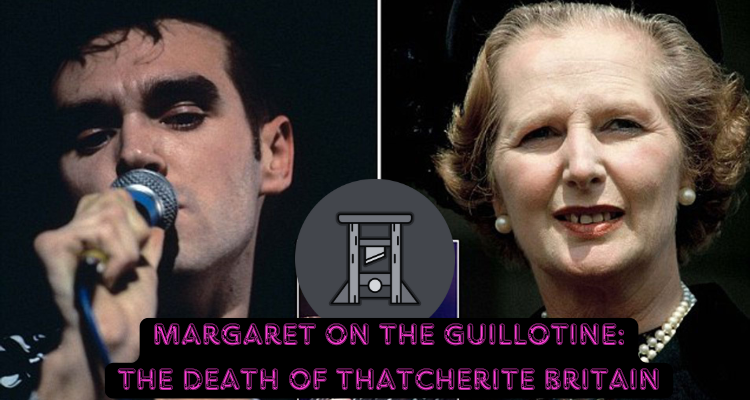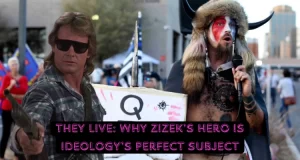If there’s one thing I’m fairly certain Morrissey isn’t, it’s a Thatcherite. Few songs in his discography make his political contempt as explicit as Margaret on the Guillotine, the closing track of his debut solo album, Viva Hate.
The lyrics don’t just criticize Margaret Thatcher—they fantasize about her execution, framing it as a collective dream of the “kind people”:
“The kind people
Have a wonderful dream
Margaret on the guillotine“
Unlike much of Morrissey’s lyricism, which relies on irony, ambiguity, and clever wordplay, this song is blunt force trauma. There’s no romanticizing, no layered interpretation—just rage, an unmistakable wish for the destruction of Thatcherite Britain.
Thatcherism as the Death of Britain
Morrissey’s hostility toward Margaret Thatcher was shared by much of the working class, the artistic community, and the leftist opposition in the UK. Thatcher’s government was synonymous with:
- The decimation of British industry: Closing mines, weakening trade unions, and dismantling working-class job security.
- The privatization of public services: A shift from collective welfare to capitalist individualism.
- The destruction of British identity: (the version of Britain that was built around working-class solidarity, public institutions, and a cultural identity rooted in labor movements.)
For Morrissey, Thatcherism represented a betrayal of Britain itself—not just an economic or political shift but an existential rupture. The Britain he romanticized—one of Northern grit, working-class community, and national pride untangled from imperialist nostalgia—was being replaced by cold, neoliberal individualism.
This is what makes Margaret on the Guillotine a nationalist song—but not in the reactionary sense. It’s nationalist in that it expresses a longing for a Britain that once existed (or that should have existed). It’s the nationalism of the betrayed—a nationalism rooted in opposition to the ruling class rather than in support of it.
The Guillotine as a Revolutionary Fantasy
The French Revolution imagery is key here. The guillotine wasn’t just a tool of execution—it was a symbol of class vengeance, of the people reclaiming power from an out-of-touch elite. By invoking it, Morrissey aligns himself with revolutionary violence, even if it’s ultimately more theatrical than literal.
And yet, despite its provocative nature, the song’s melancholic tone suggests something more than just bloodthirsty anger—it suggests desperation, exhaustion, a Britain that has been drained of hope:
“And people like you
Make me feel so old inside
Please die“
This isn’t just about Thatcher—it’s about what she represents. Margaret on the Guillotine mourns the loss of a Britain that could have been saved, but wasn’t.
Morrissey, Nationalism, and the Police
The song’s infamy wasn’t just limited to public backlash—Morrissey was actually questioned by the police after its release. In an era where the British state was cracking down on dissent—whether from miners, Irish nationalists, or anti-Thatcher artists—a song like this was enough to raise state paranoia.
This raises an important question: Why does the British state see threats to its ruling class as threats to the nation itself?
- The police didn’t investigate this song because it posed a real danger—it was investigated because it challenged the authority of the state itself.
- This reinforces the conservative stranglehold on national identity—to be truly British, one must support the government, the monarchy, and the economic order.
- In this sense, Morrissey’s nationalism is deeply anti-government, positioning itself against the ruling elite, not alongside it.
Conclusion: Nationalism as Rebellion
While Thatcher and her supporters wrapped themselves in the Union Jack, Morrissey’s nationalism is a rejection of their Britain. Margaret on the Guillotine represents a nationalist longing for a Britain that values its people over its leaders, its history over its corporations, its culture over its capital.
Morrissey wasn’t singing about killing a person—he was singing about killing an ideology. And in doing so, he forces us to ask: What does it mean to love a country that doesn’t love you back?



